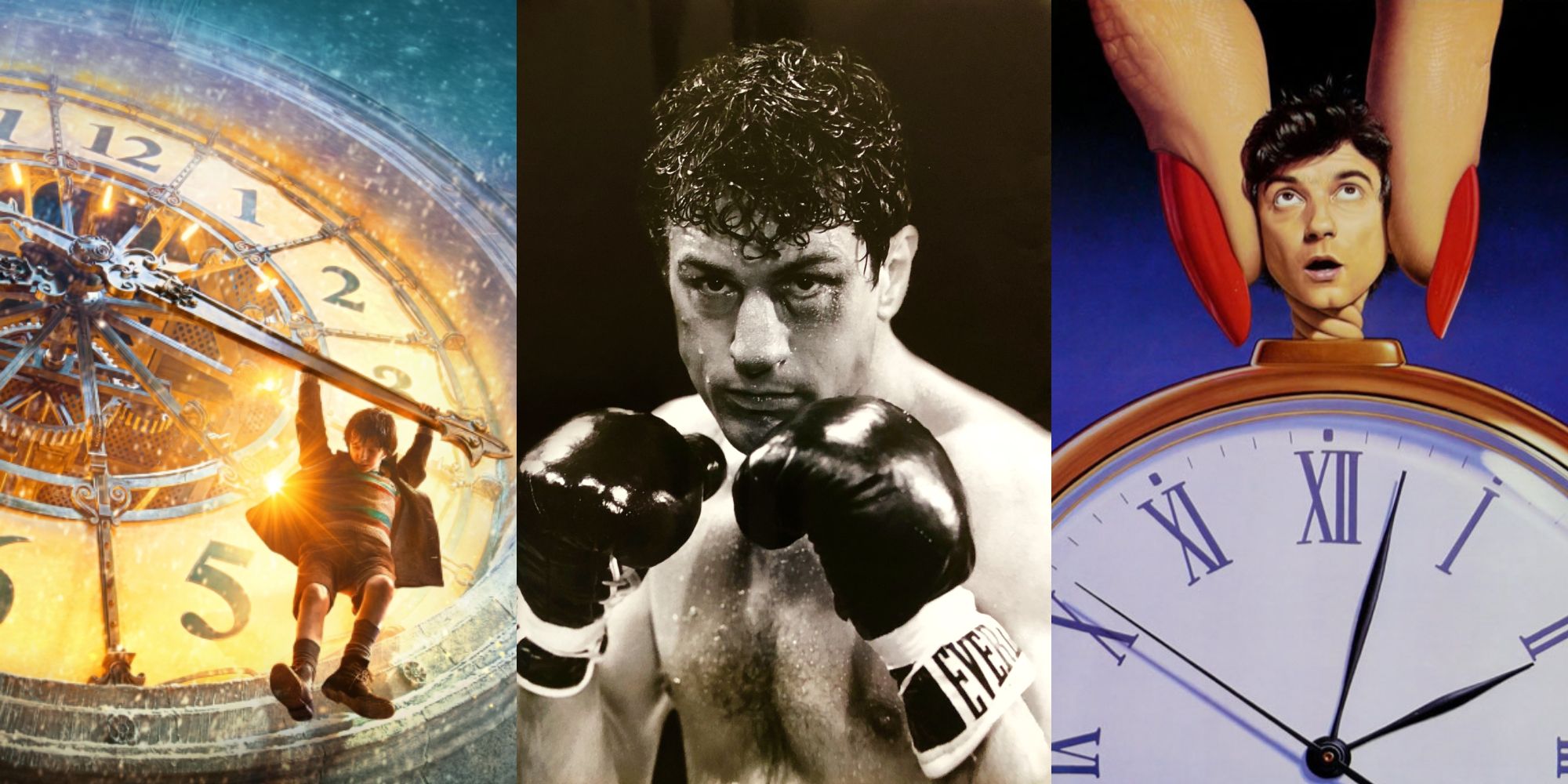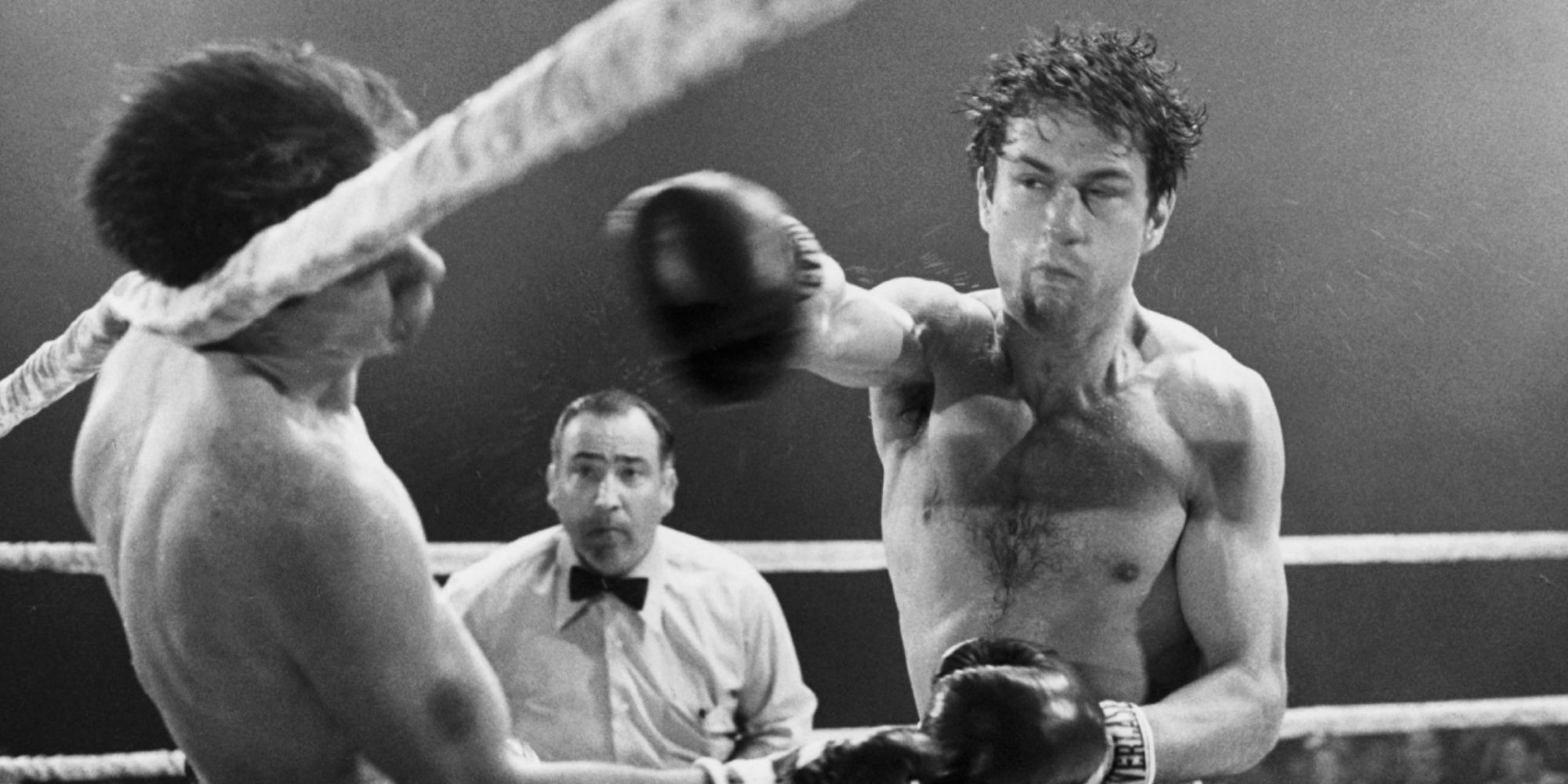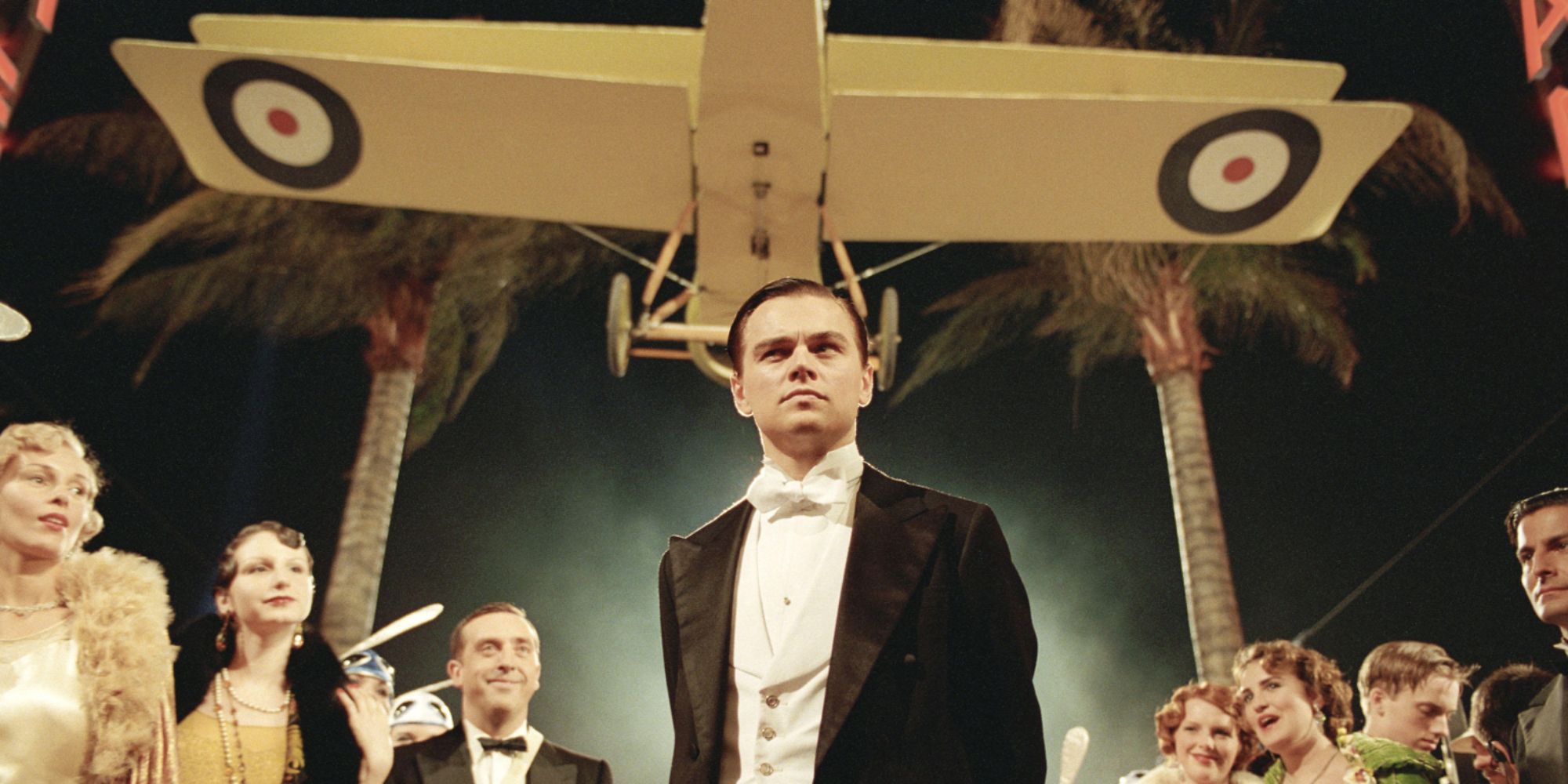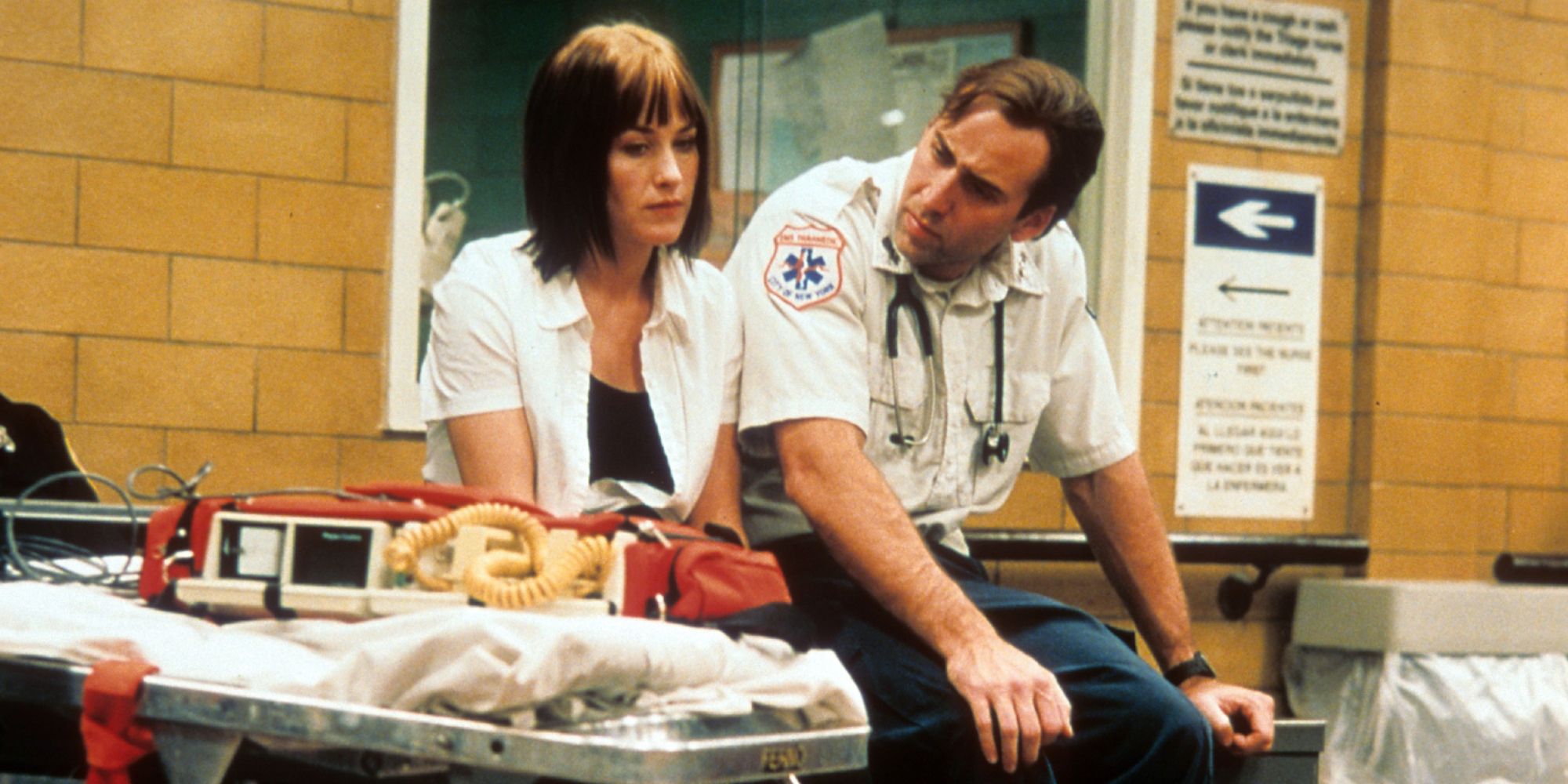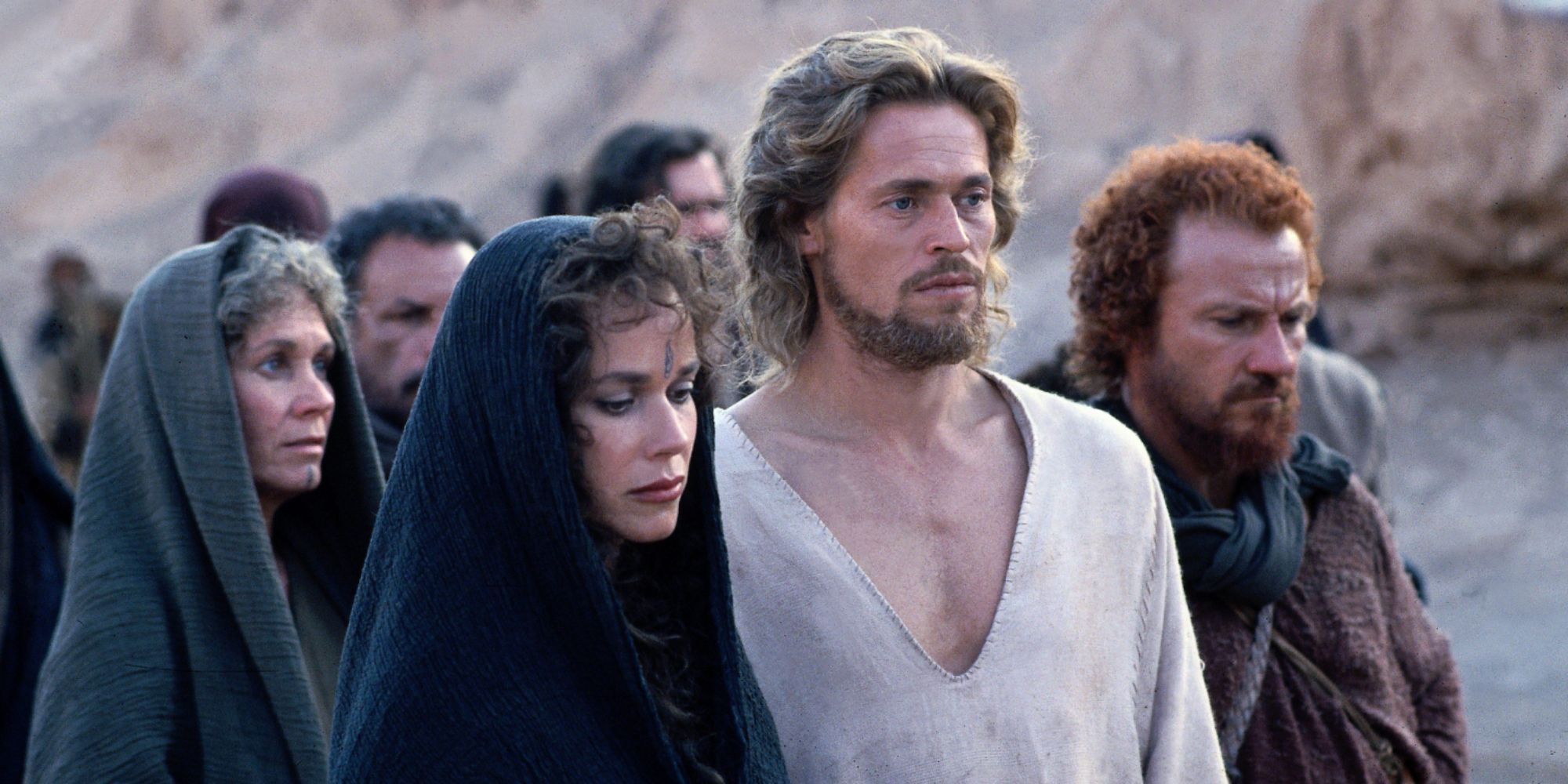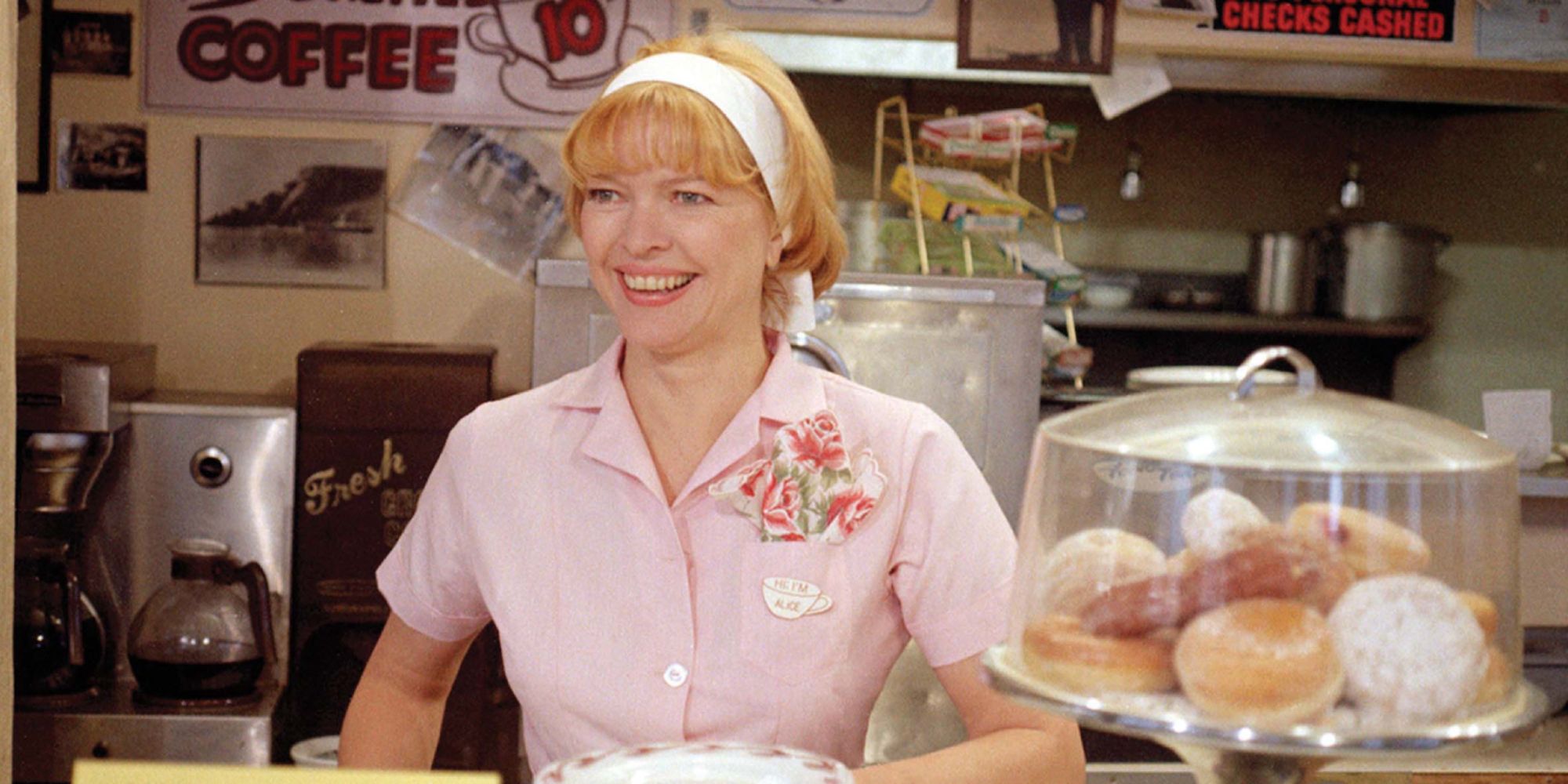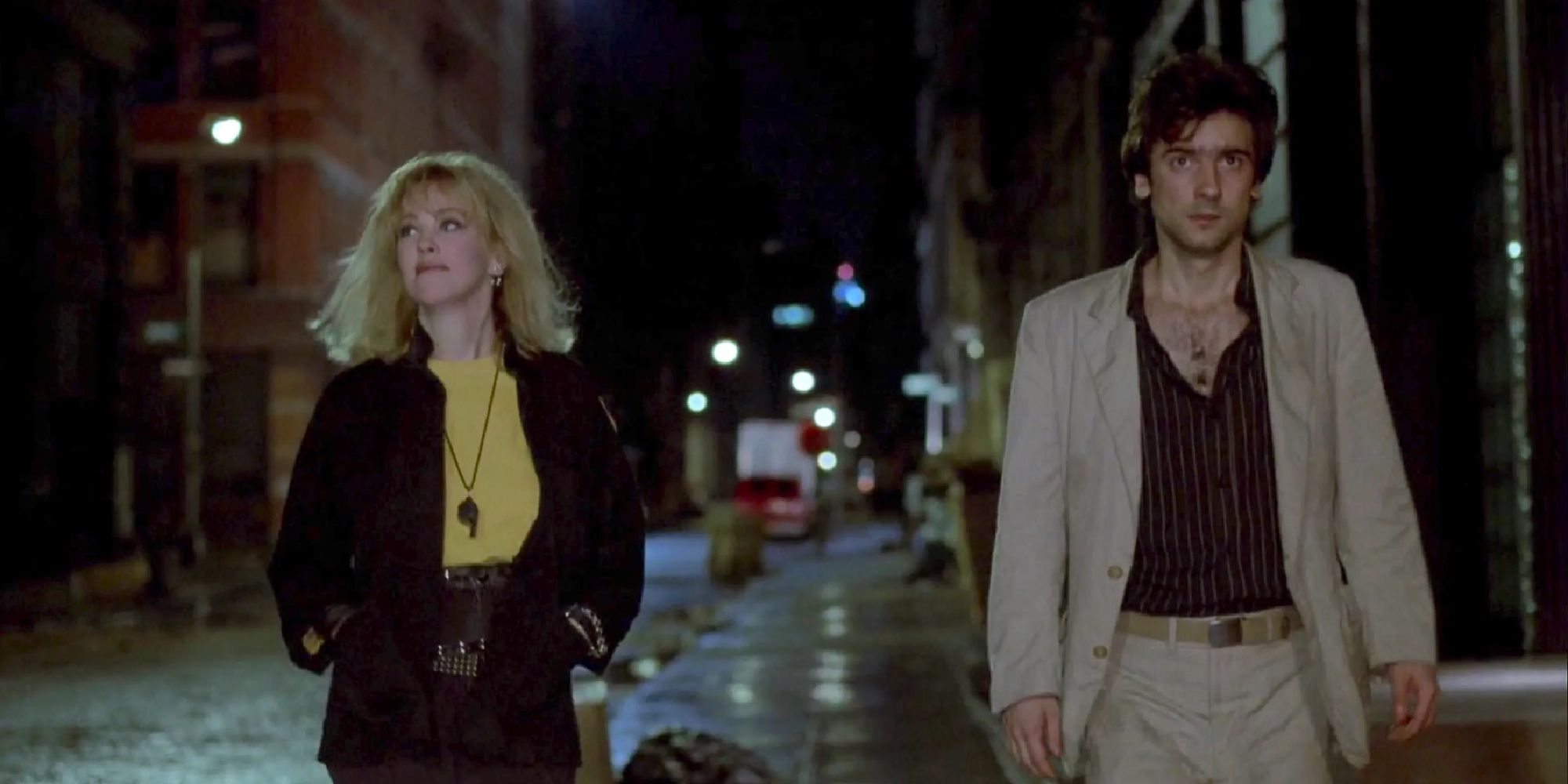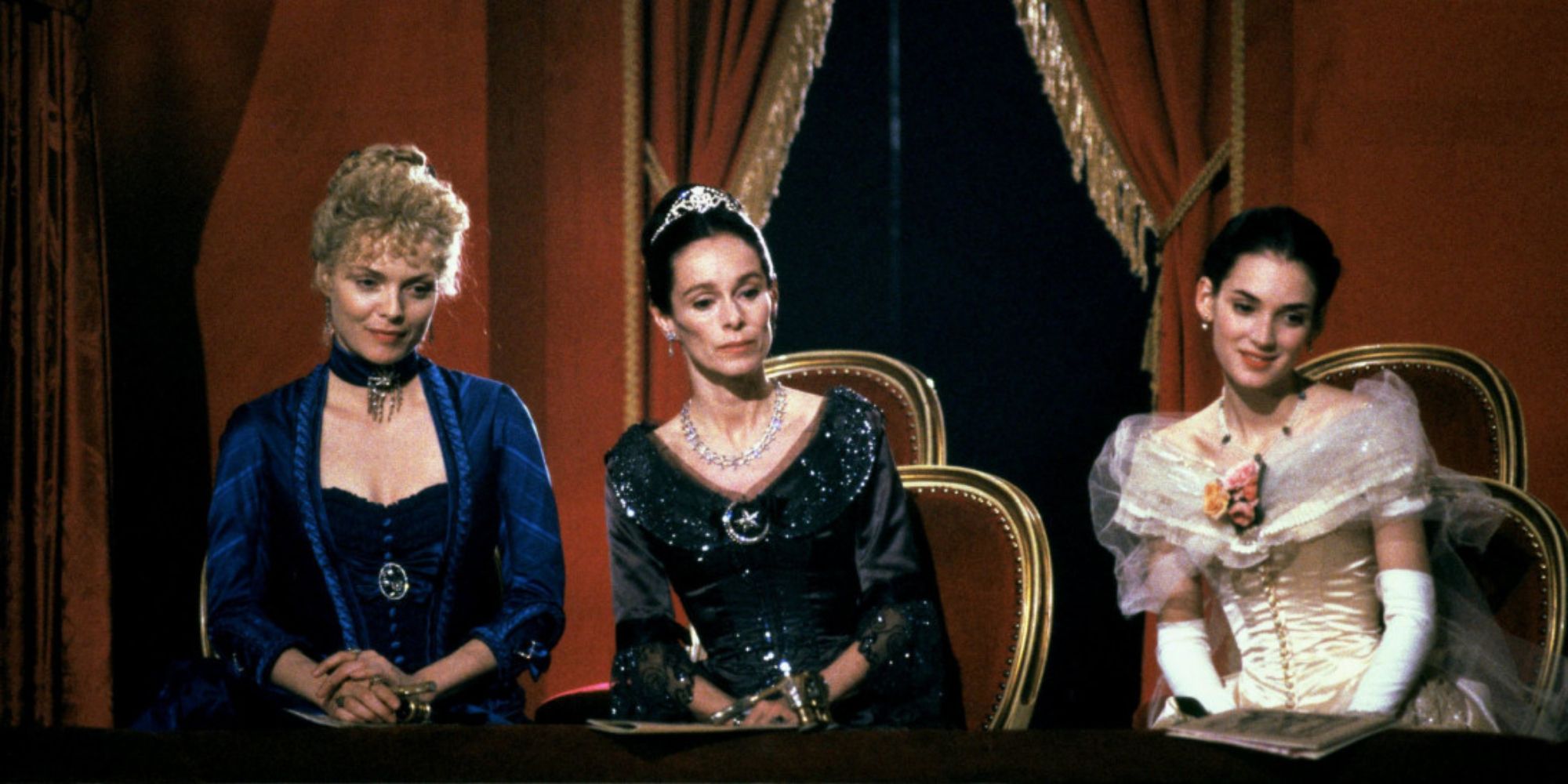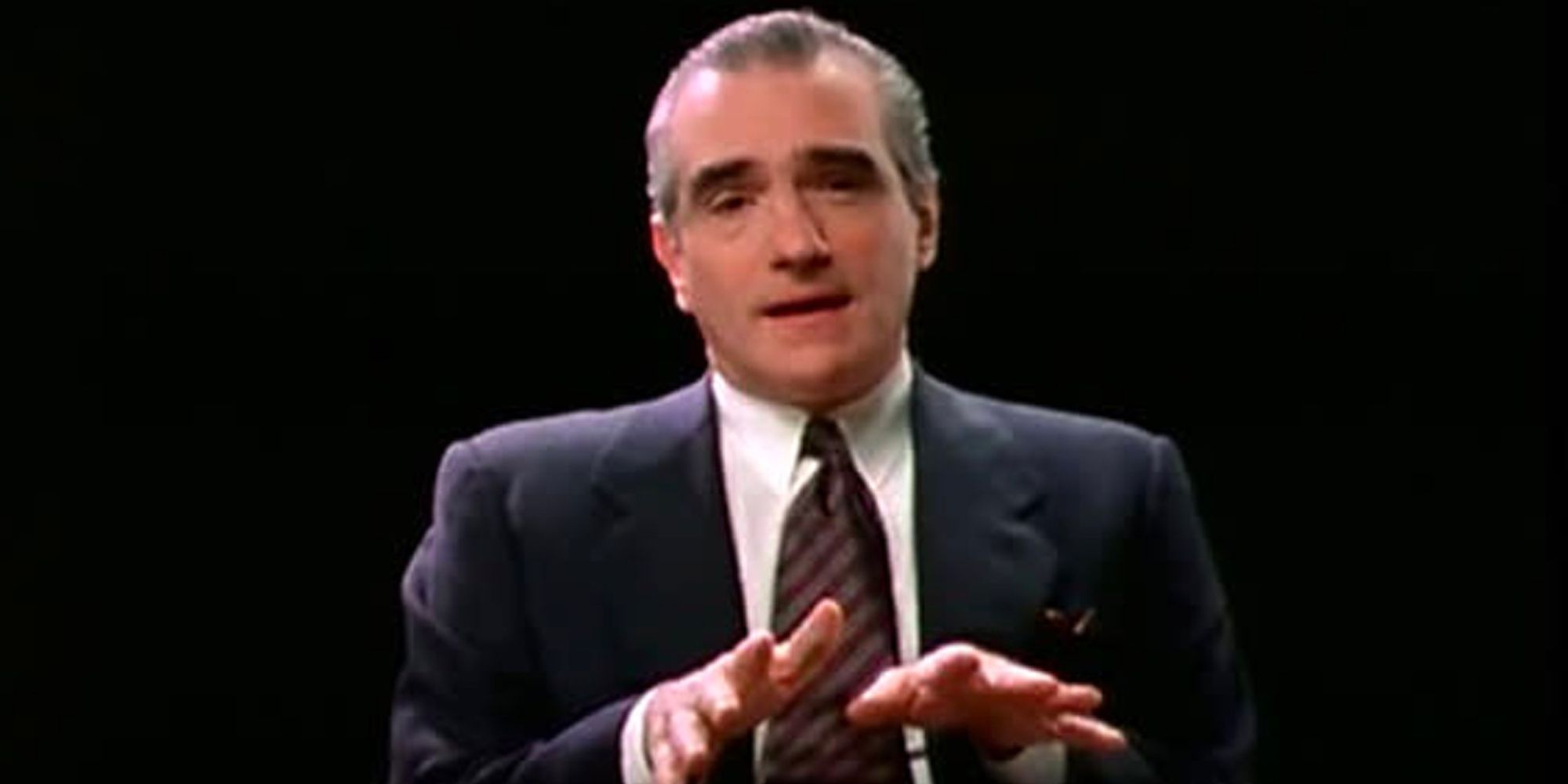Martin Scorsese is perhaps best known to movie fans today as the director who makes excellent gangster movies and that old guy who was outspoken on Marvel movies and their box office dominance. While his gangster movies are incredible (from Goodfellas to Casino to The Departed to The Irishman, to name a few), he's far more than just a director who makes excellent crime flicks. Diving deep into his filmography reveals that he has so much more to offer.
During his 50+ years making movies, Scorsese has produced documentaries, psychological thrillers, dark comedies, a family film, a biblical epic, and even a musical. The following ten films are all worth checking out for fans of the director and highlight his surprising versatility. To keep things interesting, all his crime films are excluded.
Raging Bull (1980)
Perhaps the most famous of Martin Scorsese's non-crime films is Raging Bull. It features what may be Robert De Niro's best-ever performance; it's a hard-hitting, downbeat, uncomfortable, and compelling biopic about Jake LaMotta. This aggressive and domineering boxer was equally violent and ruthless inside and outside the ring.
The violence and complex themes make it feel similar to some of the director's crime films, though LaMotta's violent profession here is (technically) a legal one. Still, the way this story about such a monstrous and terrifying central figure still makes him feel real - and keeps the audience watching - is remarkable, and it stands as one of Scorsese's very best films.
Hugo (2011)
Billed as Scorsese's first (and to date only) "kid's film," Hugo focuses on the title character, an orphan in Paris during the 1930s. He meets Georges Méliès, a man who was one of the pioneering directors of the silent era, most famously directing A Trip To The Moon, a 1902 short film that's one of the oldest science-fiction films ever made.
It becomes clear that Scorsese was perhaps most attracted to this story because of his love of old films, as beyond being a filmmaker, he's a passionate supporter of film preservation. While Hugo wasn't a big box office success, it had great use of 3D and was critically well-received. The young people who did see it likely had their eyes opened to an early era of filmmaking they may not otherwise have learned about.
Silence (2016)
A religious-themed historical epic and psychological drama all rolled into one; Silence tells the story of a pair of young Jesuit priests (played by Andrew Garfield and Adam Driver) who journey to Japan in the 1600s searching for their mentor (played by Liam Neeson).
Silence is a long, slow-paced, but gratifying film and shows Scorsese is as skilled at making films set centuries ago as he is at making crime films set decades ago. The three main actors all do great work, too, especially Andrew Garfield in the film's lead role.
The Aviator (2004)
Martin Scorsese tackles the biopic genre with The Aviator, chronicling the story of Howard Hughes, who - as a film director and an aviator who struggled with numerous personal demons - lived an exciting life, to say the least.
While Leonardo DiCaprio didn't fit perfectly into Scorsese's 2002 film Gangs of New York (and got a little overshadowed by Daniel Day Lewis's wonderfully bombastic performance), he shines in The Aviator. As a film, it might be a little long, but with great acting, strong visuals, and Scorsese's unique style, it remains one of the better biopics. That is a genre that's always hard to get right.
Bringing Out The Dead (1999)
Bringing Out The Dead stands as perhaps Scorsese's most underrated movie. With a powerhouse lead performance from Nicolas Cage and a tremendous supporting cast including Patricia Arquette, Ving Rhames, and John Goodman, it's a frantic and psychologically intense movie about an ambulance driver in New York City being pushed to his physical and emotional limits.
What lingers more than the story itself here is the experience of watching the film unfold over two very stressful but captivating hours. It's a fast and tough to handle film at times, but unlike anything else, and is one of the best showcases for Cage's unique talents as a lead actor.
The Last Temptation of Christ (1988)
Scorsese is no stranger to tackling religious themes and stories in his films, and The Last Temptation of Christ is perhaps his best-known film to do so. It takes the familiar Bible story of Jesus, focusing on his final days in particular, but does so freshly and unexpectedly.
Of course, the new take was why it became a controversial film at its release. Still, as time has gone on, it's now appreciated for being bold and unconventional and the way it humanizes Jesus (played here by Willem Dafoe) more so than most other films that tell this story. Plus, it doesn't hurt that Peter Gabriel's musical score for the film is one of the very best of all time.
Alice Doesn't Live Here Anymore (1974)
This is one of Scorsese's earliest films and his only one with a female protagonist, played by Ellen Burstyn in one of her best performances. It's a grounded, character-focused film about a single mother trying to get by in life with her son and the various obstacles that life throws in their path.
It's a straightforward and authentic story that seemed to get made in the gritty, down-to-earth 1970s more than any other decade. It may lack the flash and style of his later films, but it demonstrates Scorsese's ability to make a compelling slice-of-life drama.
After Hours (1985)
After Hours is a surreal, dark, and hilarious comedy that's thankfully found the recognition it deserves among film fans in more recent years. Following our protagonist as he attempts to escape an otherworldly depiction of New York in the early morning hours after a date goes wrong, it may have been too strange for audiences in the 1980s.
There's a good deal of humor in many of Scorsese's films (even the serious ones like Goodfellas), but After Hours is probably his funniest film. It's a tense and wonderfully disorientating experience, and its influence can be felt in the movies by the Safdie Brothers, most notably the great Good Time and the even greater Uncut Gems.
The Age of Innocence (1993)
It's hard to believe that Martin Scorsese directs this period romance, especially when it's sandwiched between Cape Fear (1991) on one side and Casino (1995) on the other. To his credit, it works and is a compelling story directed well, with great performances.
At its most basic level, it's a story involving a love triangle, but it digs deep into its characters and becomes unexpectedly emotional. With a leisurely pace and characters who internalize most of their emotions, it's a film that sneaks up on you, with its overall impact being a pleasant surprise. With the attention to detail in its costumes and production design, The Age of Innocence successfully shows another side to Scorsese many don't even realize exists.
A Personal Journey with Martin Scorsese Through American Movies (1995) + My Voyage to Italy (1999)
These are easy to pair together: one is an almost four-hour deep dive into American film history, and the other is a just over four-hour exploration of Italian cinema.
Each one is riveting because of Scorsese's passion for film, and hearing him talk about the movies that inspired him never gets old. Along with his narration are clips from the movie in question and autobiographical details of Scorsese's life and how the film of his youth shaped his filmmaking career. Both films stand as Scorsese's two best documentaries and are essential viewing for any diehard Scorsese fan.

